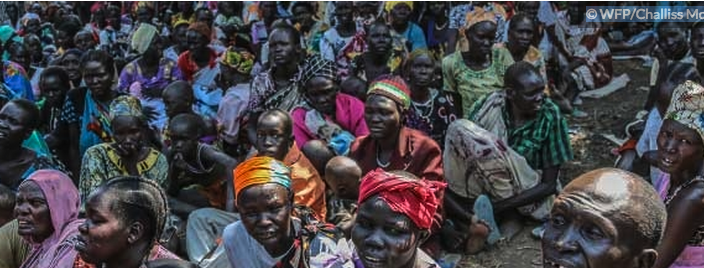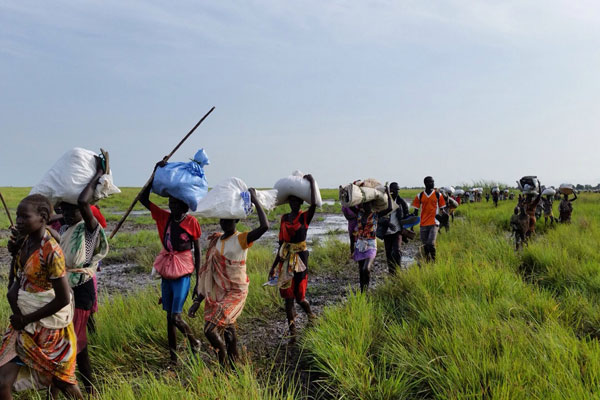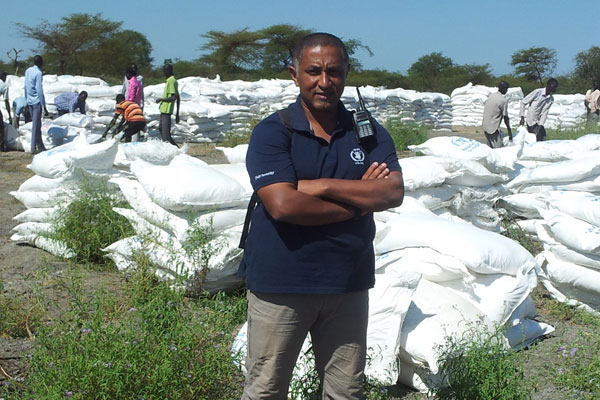Peter Testuzza is a Field Security Officer for WFP in South Sudan. When he isn’t accompanying missions to deliver food assistance to communities caught up in the civil war, he lives in Rome, where he has lived for the past 20 years. He tells us what a typical day working in one of the world’s most dangerous conflicts involves …
“I spend my time between WFP’s South Sudan country office and on mission, which means travelling to regions of the country where there is ongoing fighting and food needs to be distributed.
On a mission, we live where we work- so this could be anywhere from camping outdoors in a food drop zone to a refugee registration area or food distribution centre. It is extremely difficult to get around so we walk everywhere – even through wet, muddy swamps during the rainy season. The main thing I watch out for are the snakes and insects that can cause a lot of pain if they sting you!
My job is to follow the team and ensure that they can carry out food distributions safely. This means I wake up early and have a quick breakfast of pasta and tea before I get ready to start the working day with the team I’m accompanying.
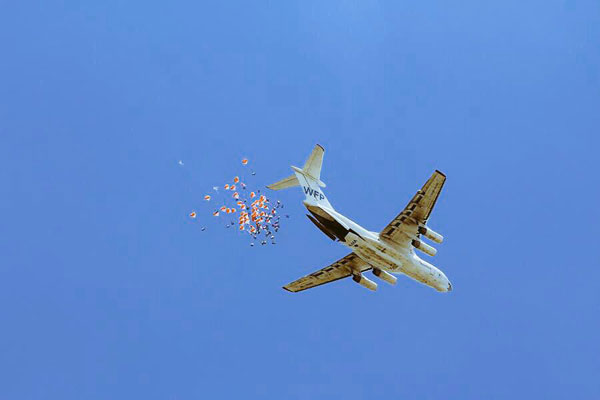
Image: Vegetable oil is dropped from the sky in areas inaccessible by road (Photo: WFP/ George Fominyen)
“I wish the world knew”
No day is the same – It depends entirely on the mission. Often we will start by registering people in need of food assistance. This can go on for as long as four days, which gives some indication as to how many need support. We also help with helicopter food drops of cereal sacks, special food for kids and vegetable oil – this is because it is too unsafe to deliver the food by road. Finally we are able to start distributing all of this to the communities in need.
With it in mind that fighting could break out at any time, we need to be prepared. Before any mission, I communicate with local authorities, assess the security in the area, and equip myself with a thorough knowledge of the area so that in case of emergency evacuation, I can relocate my team quickly.
I wish the world knew how unsafe it is for civilians to move around freely here – whole communities are cut off from food. What we read in the media about hunger in South Sudan doesn’t even come close to the scenes of desperation that we see on a daily basis. Since the whole population is affected by the conflict, without the assistance of WFP and other organisations, we would be facing an even bigger hunger crisis than we are.
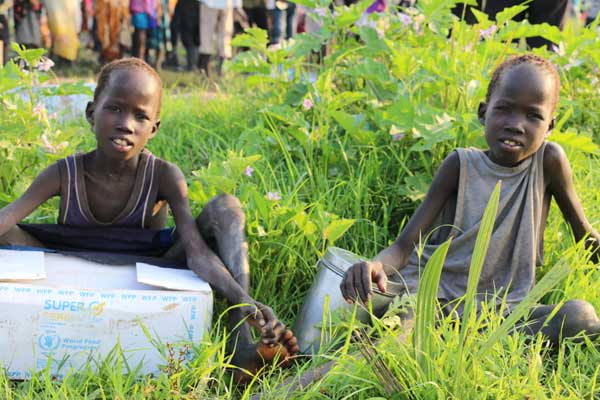
Image: Children in South Sudan holding food delivered by WFP helicopter air drops (Photo: WFP/ Jaqueline Dent)
Seeking safety
Each day presents a different challenge; from food registration and distribution through to ensuring that food drop zones are completely clear of people and animals (not as easy as you’d hope when a drop zone area is at least 800m long and 200m wide!)
Of course, things don’t always go to plan. During my last mission, we heard shelling and shooting moving nearer and I had to call for an emergency helicopter to evacuate us, but at the time of take-off it developed a mechanical problem. While we waited, a villager began pronouncing magic words and throwing dry leaves at the helicopter – it was his way of helping us escape to safety. Eventually, we managed to take off. While flying away, I will never forget the image of women and children crossing swampland, desperately seeking a safer place to live away from crossfire.
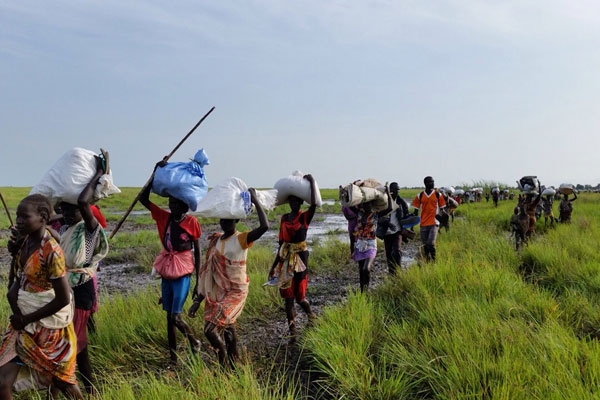
Image: A community moves to a safe location to escape shelling and shooting. (Photo: WFP/ Peter Testuzza)
The hardest part of the job
There is no fixed ‘end of the day’ in this job – I can only rest when the team are safely back inside our compound, but really you are on duty 24/7 in case issues arise in the night and you need to react.
We keep spirits up by eating together and will often cook rice and beans for dinner. If lucky, we may find chickens or goat. Sometimes missions are extended and this is when our wellbeing can become an issue due to food and water shortages. I’m always prepared with purifying tablets so at least we always have potable drinking water.
Sometime I ask myself why I do this job. I guess the answer is that I like to assist those at the forefront of an emergency. When I am posted to conflict-affected countries like South Sudan, it is often met with disapproval from my family but then they hear my stories and I hope they feel glad that I am doing this.
The hardest part is not being able to do enough to help women and children who really suffer every day. I will never forget the mother who pleaded with me to take her new-born baby in order to give him a safe life. This can be hard to switch off from – but I feel comforted that I am doing all I can to make life even slightly more bearable for the people there.”
Copyright: World Food Programme 2015

